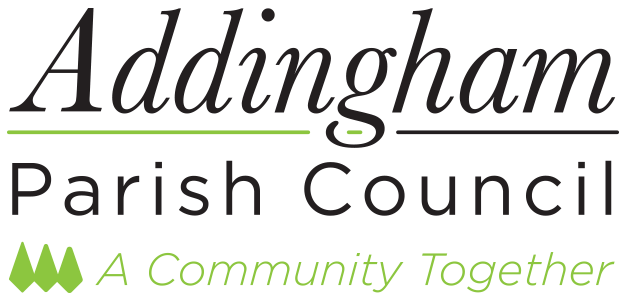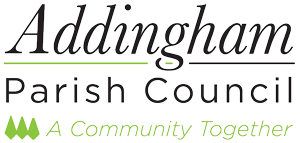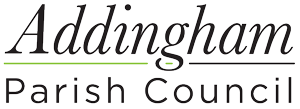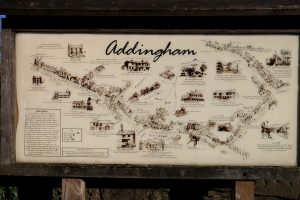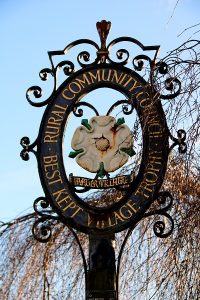What is a Parish Council?
A parish council is a local authority that makes decisions on behalf of the people in the parish. It is the government level closest to the community, with the district authority above it in the hierarchy. As it is the authority closest to the people, parish councils are invariably the first place people will go with concerns or ideas. For this reason they are a vital part of any community.
Why become a Parish Councillor?
If you’ve never been to a parish council meeting before, you may be forgiven for thinking that parish councillors are a group of fusty people who meet now and then in a draughty village hall. If, however, you live in a bustling and busy community such as Addingham, you’ll know that when people in the community need support and guidance, it is sometimes the parish council that is turned to.
By becoming a parish councillor you become someone your community will look to for help, guidance and support, a community leader with the power to influence decisions for the benefit of the people you serve. Seeing your community change for the better, as a result of decisions you have helped make, is something that can give you a sense of achievement and pride.
What decisions do Parish Councils make?
Parish councils make all kinds of decisions on issues that affect the local community. Probably the most common topics that parish councils get involved with are planning matters, crime prevention, managing open spaces and campaigning for and delivering better services and facilities.
It’s true to say that on their own, parish councils have limited powers to make decisions. But they do have the ability to negotiate with those other organisations that do make the final decisions (such as the borough council, health authorities, police etc).
In this respect parish councils are extremely powerful. The organisations that make the final decisions know that a parish council gives the best reflection of how a community feels about something, and its views will be taken seriously.
How much time does it take up?
Councils usually meet once a month for the council meeting, to which members of the public are also invited. Meetings may last one to two hours, depending on the agenda set for the meeting to discuss. Some councils have committees to deal with specific subjects, such as environmental issues. In addition to the regular meetings, councillors are required to attend other meetings representing the parish council, such as a representative on an outside body, community activities or helping develop a new project for the community.
Council Meetings
Monthly meetings of the Parish Council and its committees are open to the public, and everyone is welcome to attend. Meetings of the full Council normally take place on the third Wednesday of every month (except August), and planning committee meetings are normally held on the first Wednesday of the month. Dates and times of all public meetings are published on this site and on the village noticeboards a week beforehand. Council meetings start at 7pm, normally in the Old School Room, on Main St (above the Library – entrance up the steps to the rear), but whilst it is closed in the Memorial Hall, Main St.
COMMITTEES OF THE COUNCIL
The Council currently has a finance committee and property & maintenance committee. See their terms of reference here:
Finance-Committee-terms-of-reference 2024
Property and Maintenance Committee terms of reference ammended May 2023
Disabled entrance
Up the steps to the left and up the ramp to the rear of the building:

Anyone wishing to raise an issue regarding village affairs may address the meeting (with the Chairman’s permission).
Details of all Council activities are published in the news and events page on this site, in the Council newsletter, and on notice-boards around the village.
Please check the agenda on noticeboards or contact the clerk if you wish to know if and when a particular issue or planning application is to be discussed.
Composition
The Council comprises eleven elected members, whose details can be found on the List of Councillors page. Elections are held every 4 years, usually on the same day as that year’s District Council elections. The next election will be in May 2027.
Notice of Election Result has been duly published by the Returning officer and can be viewed HERE.
Councillors are not elected on a party political platform, and so all debates and decisions are based on what Councillors believe will be most beneficial for the village and its residents.
Role
Although the Council has limited statutory authority it does have a very powerful and persuasive part to play in influencing Bradford Metropolitan Council in making decisions that concern Addingham. Its involvement stretches from footpath maintenance to commenting on planning applications, from providing input to reviews such as the Local Plan consultation, and requesting traffic control measures such as speed limits and parking restrictions throughout the village. The Council also supports many local sporting and social organisations. See the separate page Council Services on this site to see a full list of our activities.
The Aims and Objectives of the Parish Council
The Council aims to look after the interests of the village for the residents of Addingham, to act on their behalf, and to help improve the facilities and amenities of the village wherever possible for the benefit of the community.
General Power of Competence
Under the Localism Act 2011, parish councils with a qualified clerk and with at least 2 thirds of its members elected (as opposed to being co-opted) may resolve that they meet the criteria to hold the General Power of Competence, which means that, in broad outline, they may do whatever an individual can do.
Addingham Parish Council meets these criteria as the clerk is qualified and holds the Certificate in Local Council Administration. Having the General Power of Competence enables the Council to continue seeking innovative and cost-effective ways of providing services for the benefit of Addingham residents.

